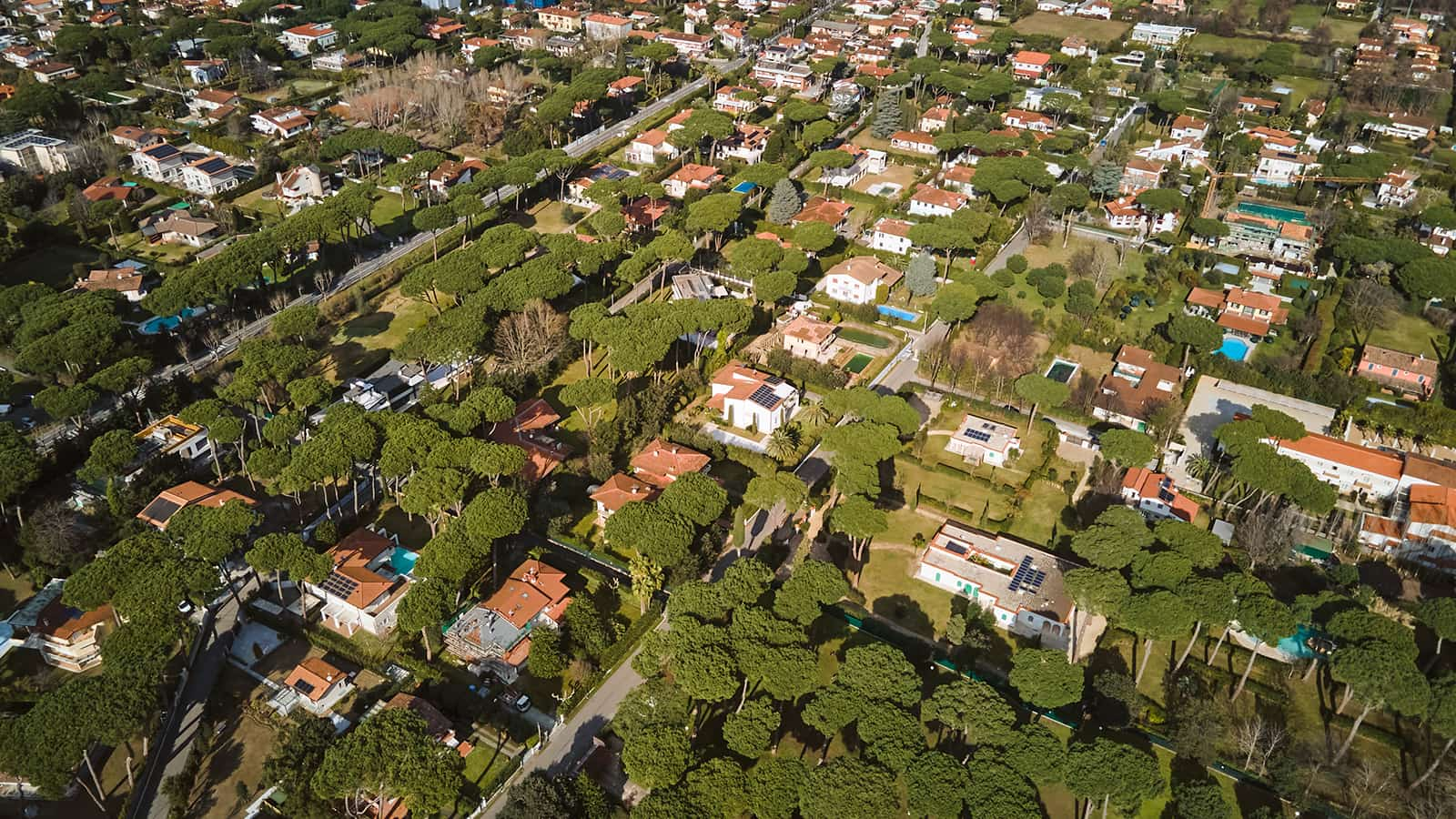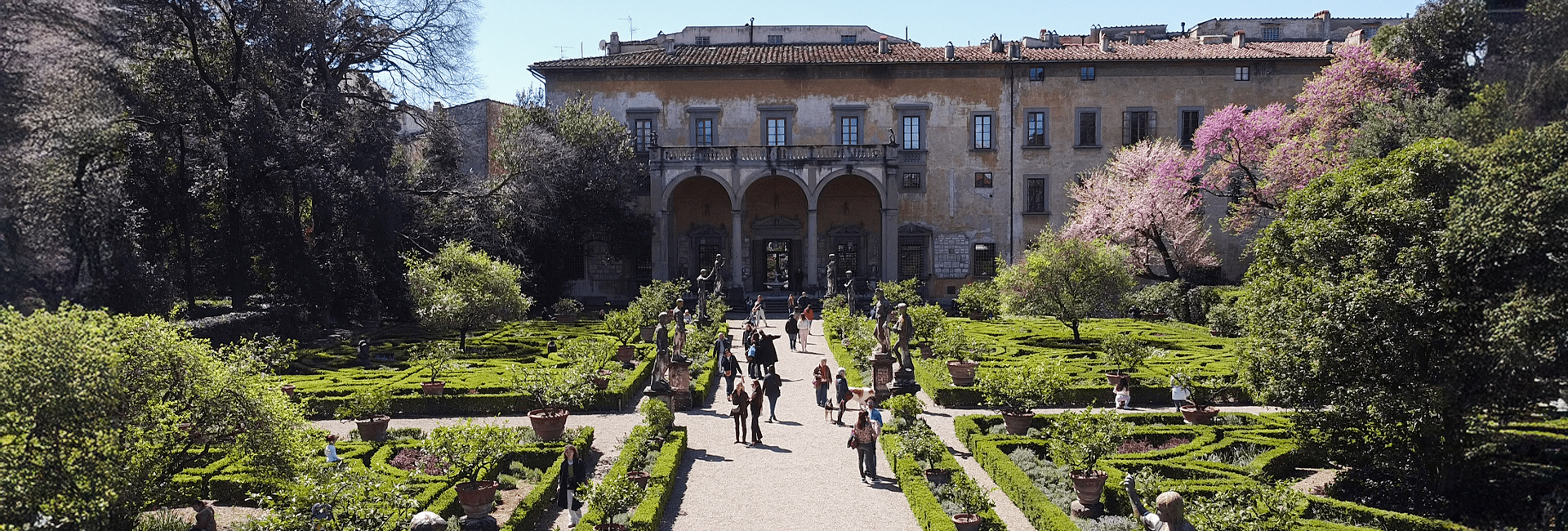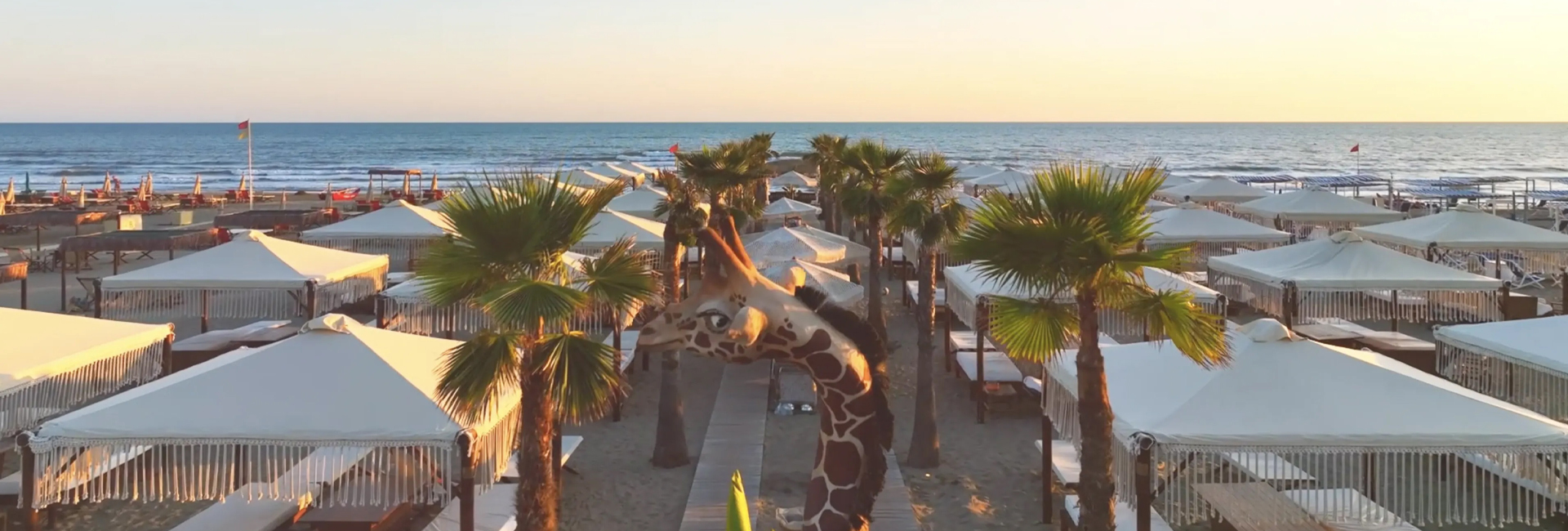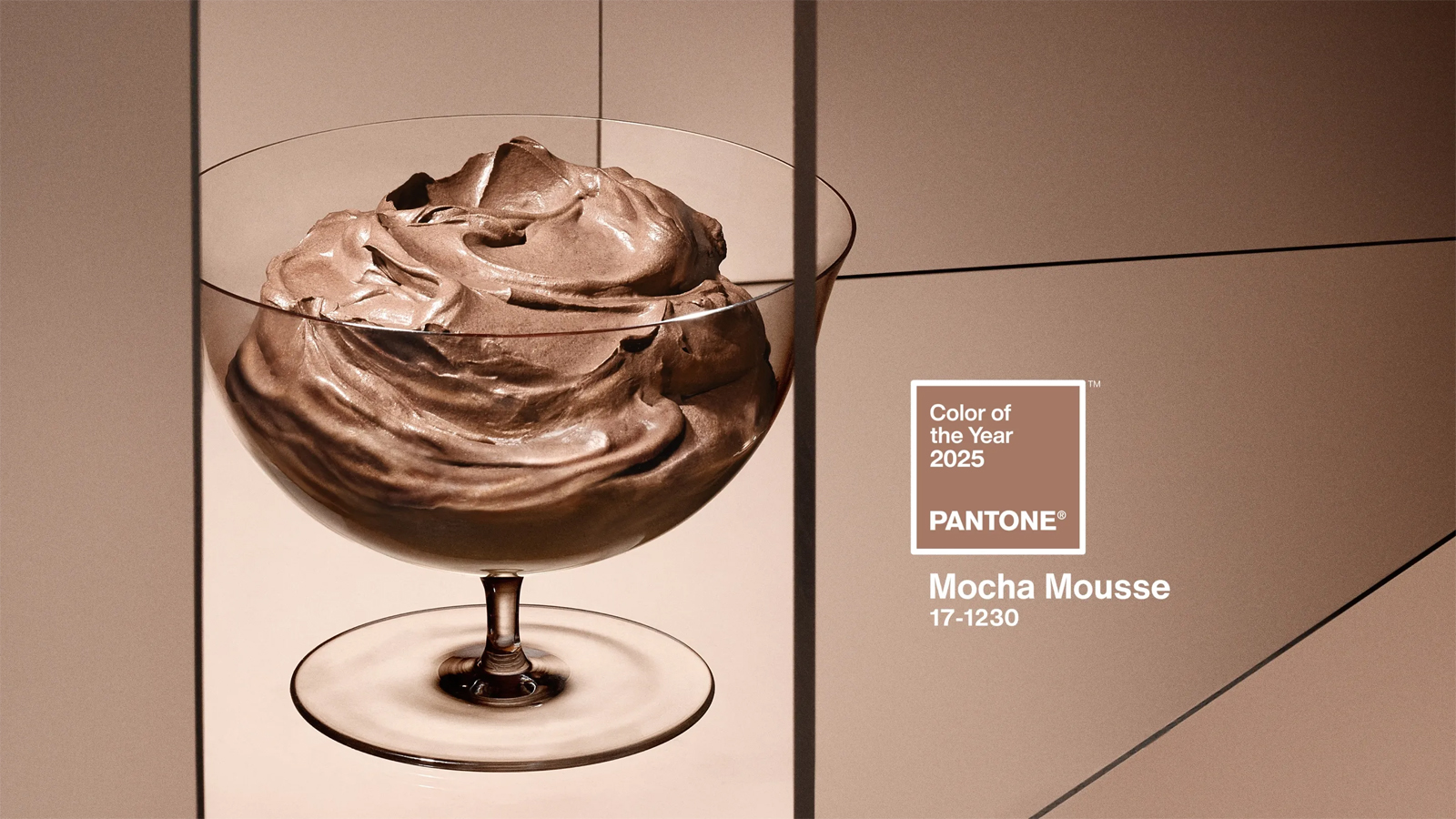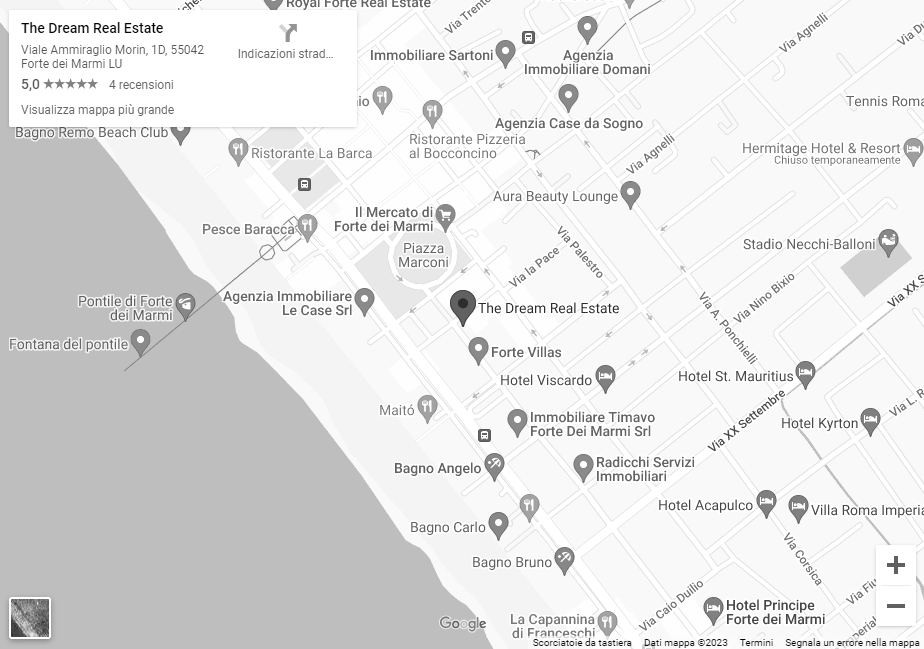Forte dei Marmi is one of the best known luxury resorts on the Italian and international scene. The small Tuscan town located along the Versilia coast boasts an extremely prestigious geographical position: washed by the Mediterranean Sea on one side and enclosed by the Apuan Alps on the other. This position mitigates the climate in both summer and winter, allowing a pleasant and peaceful life.
Moreover, Forte dei Marmi is in an optimal position to reach art cities such as Lucca, Florence or Pisa and the fantastic Cinque Terre in Liguria. Milan and the country’s major economic centres can be easily reached.
Forte dei Marmi’s celebrity is not only due to the presence of boutiques, bathing establishments and high-class clubs, but also to its history, location and high cultural and artistic level. A mix of factors that over time have made Forte dei Marmi ‘the place to be’.
The town centre is certainly the liveliest area throughout the year. Events follow one another and animate its streets and seafront. Boutiques, art and culture, accommodation centres, nightclubs, starred restaurants and much more.
Forte dei Marmi is divided into various districts, each with characteristic and unique features that together provide a perfect mix for every need. Centro, Roma Imperiale, Vittoria Apuana and Caranna.
History and success
The history of Imperial Rome traces its origins to the beginning of the 20th century. Conceived as a refuge for the privileged, this area flourished as a haven of luxury and elegance. Its birth was marked by the vision of architect Alfredo Belluomini, whose architectural prowess led to the creation of the district’s iconic villas, each embodying a unique blend of neoclassical and Art Nouveau influences. The area’s allure quickly captured the hearts of elite visitors, cementing its reputation.
The name of the area, somewhat like Vittoria Apuana, derives from the anonymous cooperative society that bought the plots of land in the 1920s and later resold them. This is an important feature of Roma Imperiale’s success as a residential area.
Celebrities and cinema
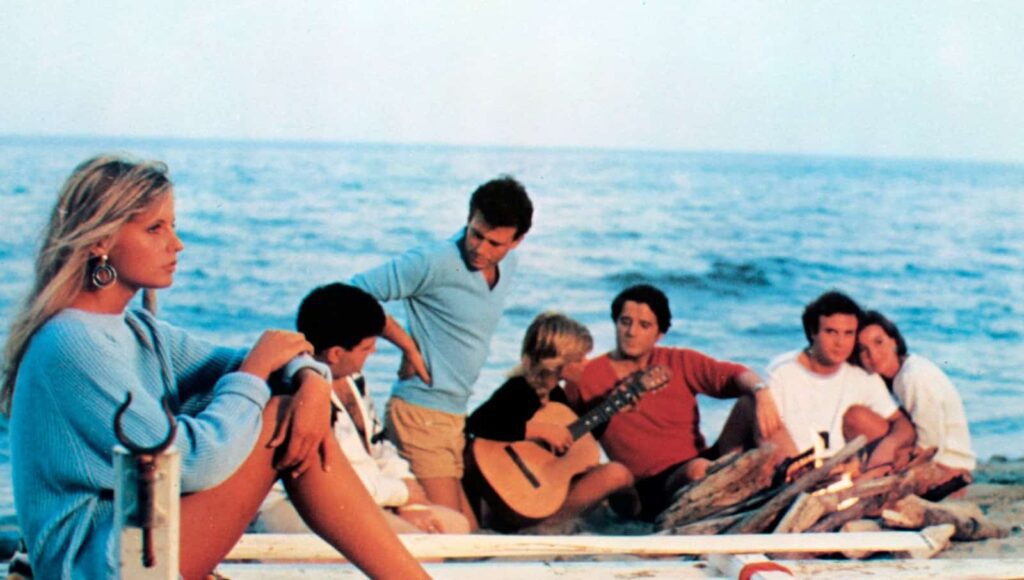
Many celebrities have also been attracted by the appeal of Rome Imperiale. Distinguished figures from the worlds of art, entertainment and business have sought refuge and inspiration within its confines. The district’s atmosphere of exclusivity and sophistication has made it a favoured refuge for those seeking relief from the demands of public life.
At the heart of Imperial Rome are the grand villas, each a testament to architectural marvel and design excellence. Among them, Villa Agnelli stands out as an iconic jewel. This magnificent residence, once the summer home of the Agnelli family, exudes timeless elegance.
It was the Agnelli family that was the main promoter of Forte dei Marmi. Gianni Agnelli spent his youth at Villa Costanza, today’s Hotel Augustus, falling madly in love with the Versilia lido. Among the villa’s many gems is a subway built in 1951 to connect the house directly to the sea.
The beaches and clubs between the 1950s and 1960s filled up, creating what can be defined as the golden age of Forte dei Marmi: days were spent on the beach and then long nights in the clubs dancing and having fun. It was at that time that Forte dei Marmi and the beaches of Roma Imperiale attracted paparazzi and directors ready to immortalise the eternal beauty of those shores.
Speaking of cinema, ‘Sapore di Mare’ certainly represents not only the image of an elegant and beautiful Forte dei Marmi, but a true glimpse into the Italy of the 1980s. Directed by Carlo Vanzina and starring, among others, Jerry Cala, Christian De Sica, and Virna Lisi, the film represents the Italian dream of those years and the dream that continues to live on in Forte dei Marmi today.
Villas and hotels
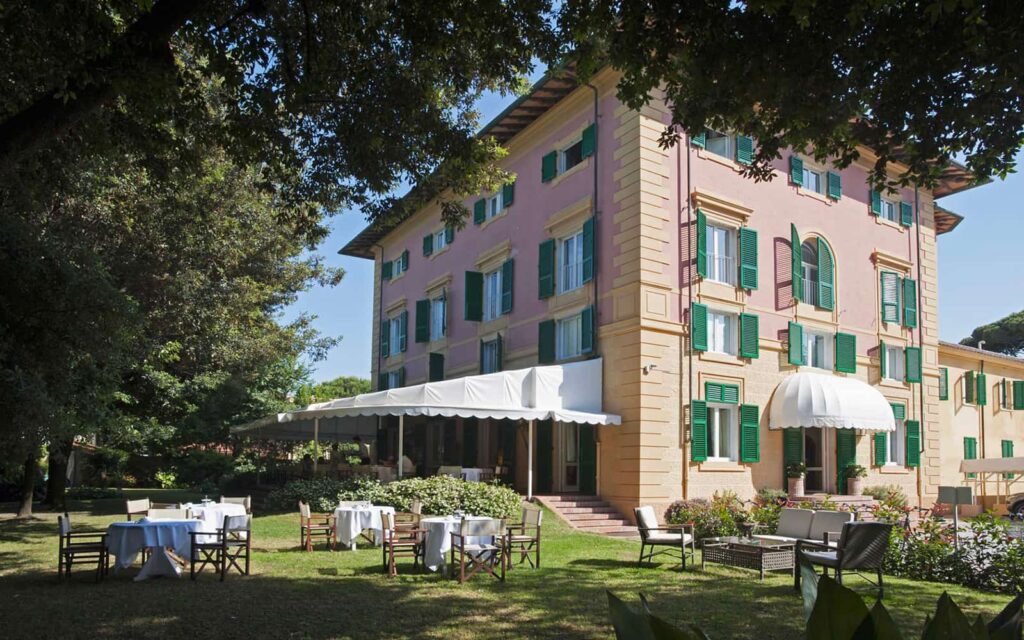
Thanks to its fame consolidated over the decades, Roma Imperiale represents The Living Quarter in Forte dei Marmi. It is the highest ambition for anyone who decides to buy a house in this strip of coastline. There are many famous people who have or have had homes in this quarter: we can cite the famous German writer Thomas Mann or the Siemens family, but even today the race to buy a house in these spaces rich in greenery and privacy is on.
Roma Imperiale has a historical charm, a cultural fascination and also a unique landscape charm. One of the few areas on the Tuscan coast where we can still see long pine forests and green spaces typical of the Mediterranean maquis.
However, Roma Imperiale is also hotels and accommodation facilities. We mentioned earlier the famous Hotel Augustus, linked to the Agnelli family, but also the Hotel Principe and the Miramonti resort, with a younger tradition, are some of the best solutions for those who want to have a peaceful and comfortable stay. Swimming pool, fine dining, elegance and refinement.
Bathing establishments
The beaches in the district are famous throughout Italy for their facilities and elegance. The bathing establishments offer comfort and relaxation to the sound of the sea waves. Among the best known are the Augustus beach club, a private beach of the Hotel of the same name, the Alcione beach club, bought by Alessia Berlusconi, and the Twiga beach club, which in addition to being a famous beach at night comes alive thanks to events on the beach to the rhythm of music.
La Capannina: a timeless legend
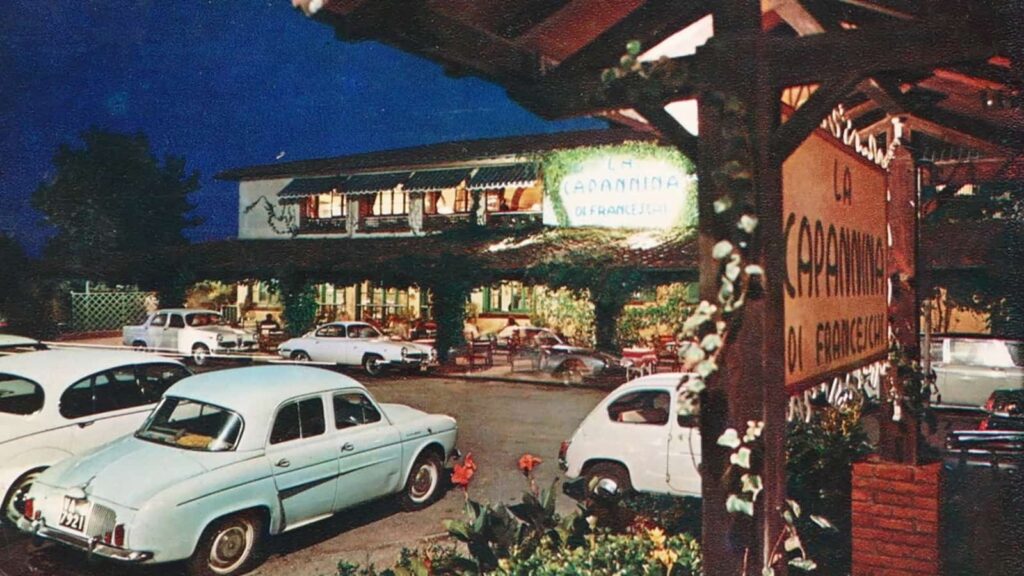
When the sun disappears below the horizon, turning the blue sky into a canvas of stars, Roma Imperiale comes alive with a glittering variety of nightclubs, each offering a unique and unforgettable experience. Among them, one name stands out as a true legend of the nightlife scene: La Capannina.
A beacon of nightlife in Forte dei Marmi since 1929, La Capannina has earned its place as an institution of entertainment and luxury. With a history spanning generations, this legendary nightclub has welcomed countless guests, including many international celebrities in search of a dream night out.
From the rooms for aperitifs and dinners to the dance floor, this magical place creates indelible memories in the minds of anyone who spends even one evening inside. A history of great tradition that is destined to last forever.


